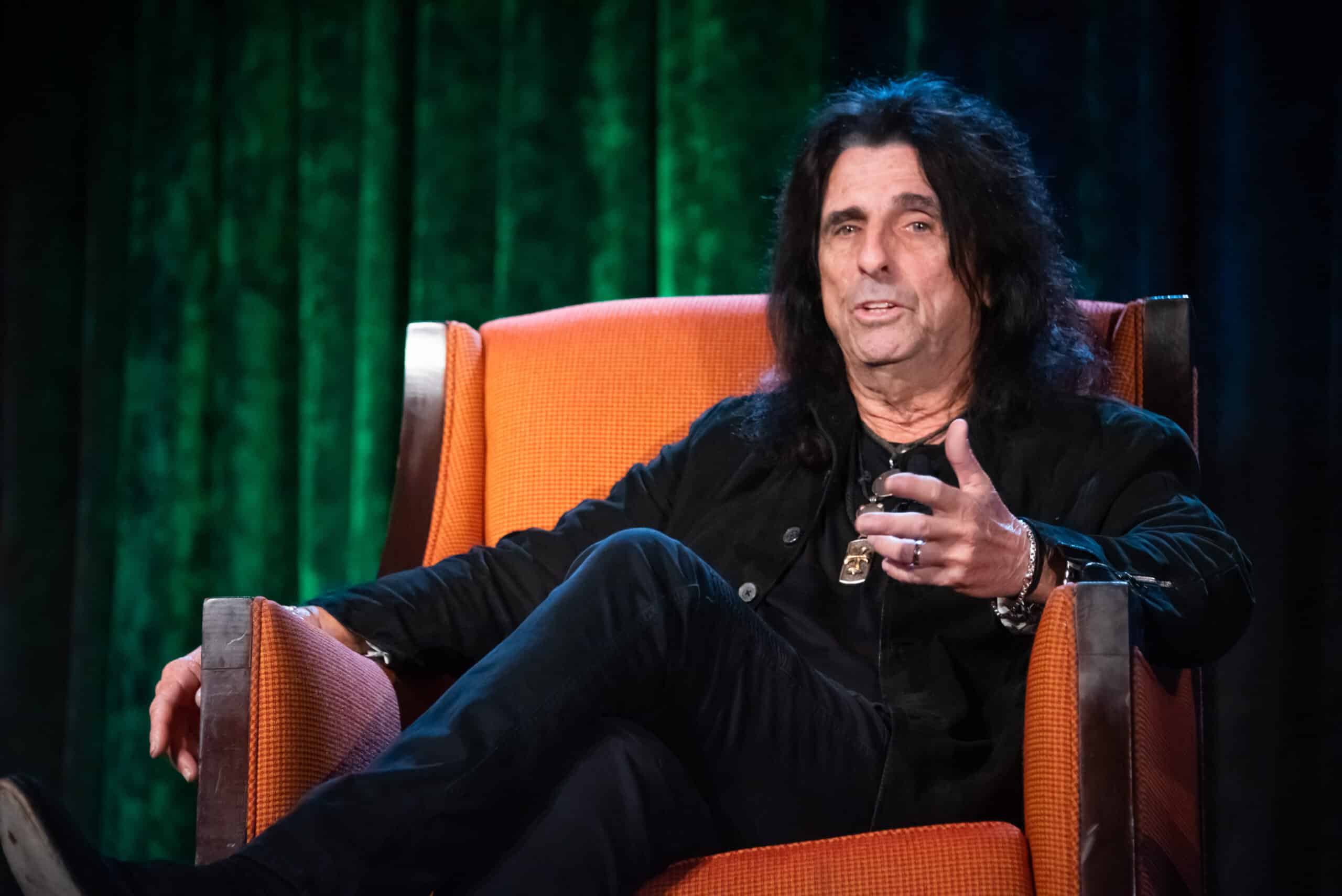
Alice Cooper, the Godfather of Shock-Rock and Rock & Roll Hall-of-Famer thrilled an audience of more than 1100 with his personal story of recovery from alcoholism and addiction this past Thursday at the Hilton Americas-Houston. In the process, he helped The Council on Recovery raise more than $495,000 to provide addiction prevention, education, and treatment services in the Greater Houston area.
The total funds raised are expected to rise after on-site green card donations are tabulated.
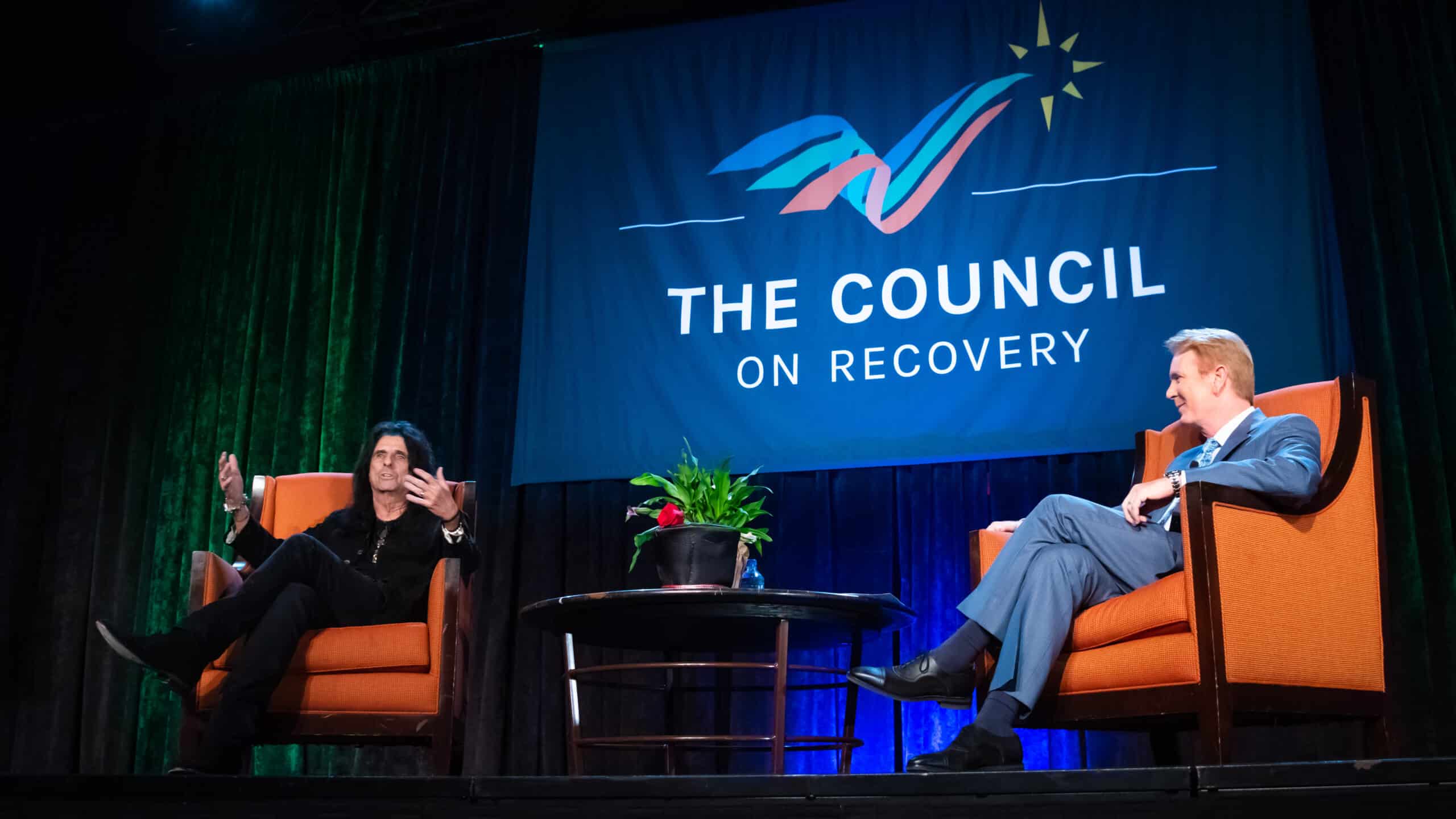
Alice was the keynote speaker at the 36th Annual Fall Luncheon in The Waggoners Foundation Speaker Series presented by the Wayne Duddlesten Foundation.
The Luncheon was chaired by Council board members Dennis Robinson
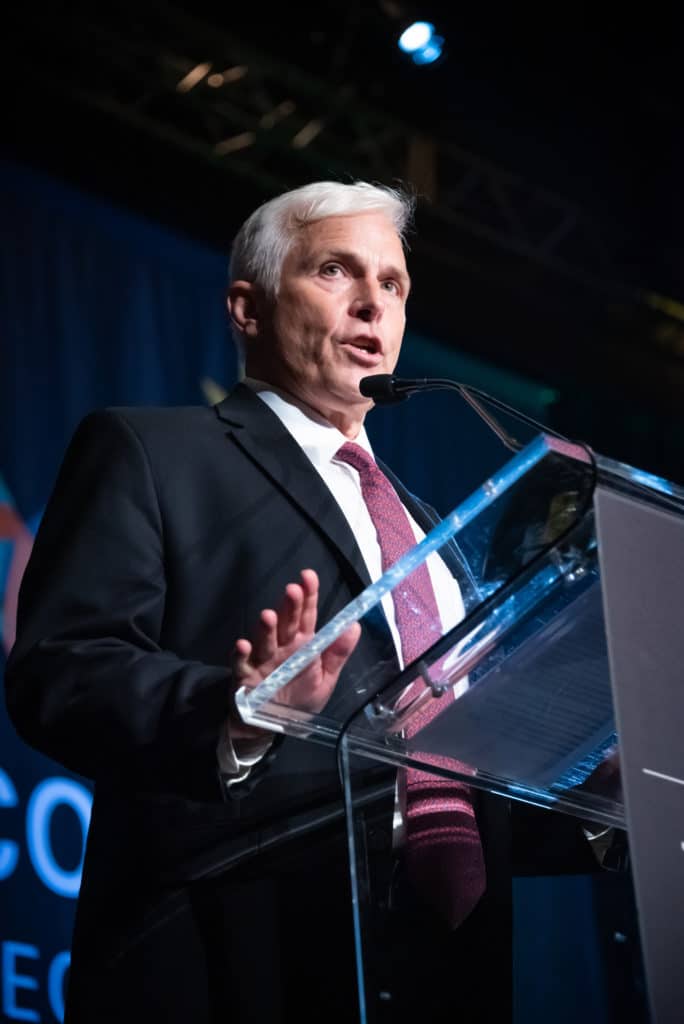
and Tony Valadez, each of whom related their own personal experience with recovery
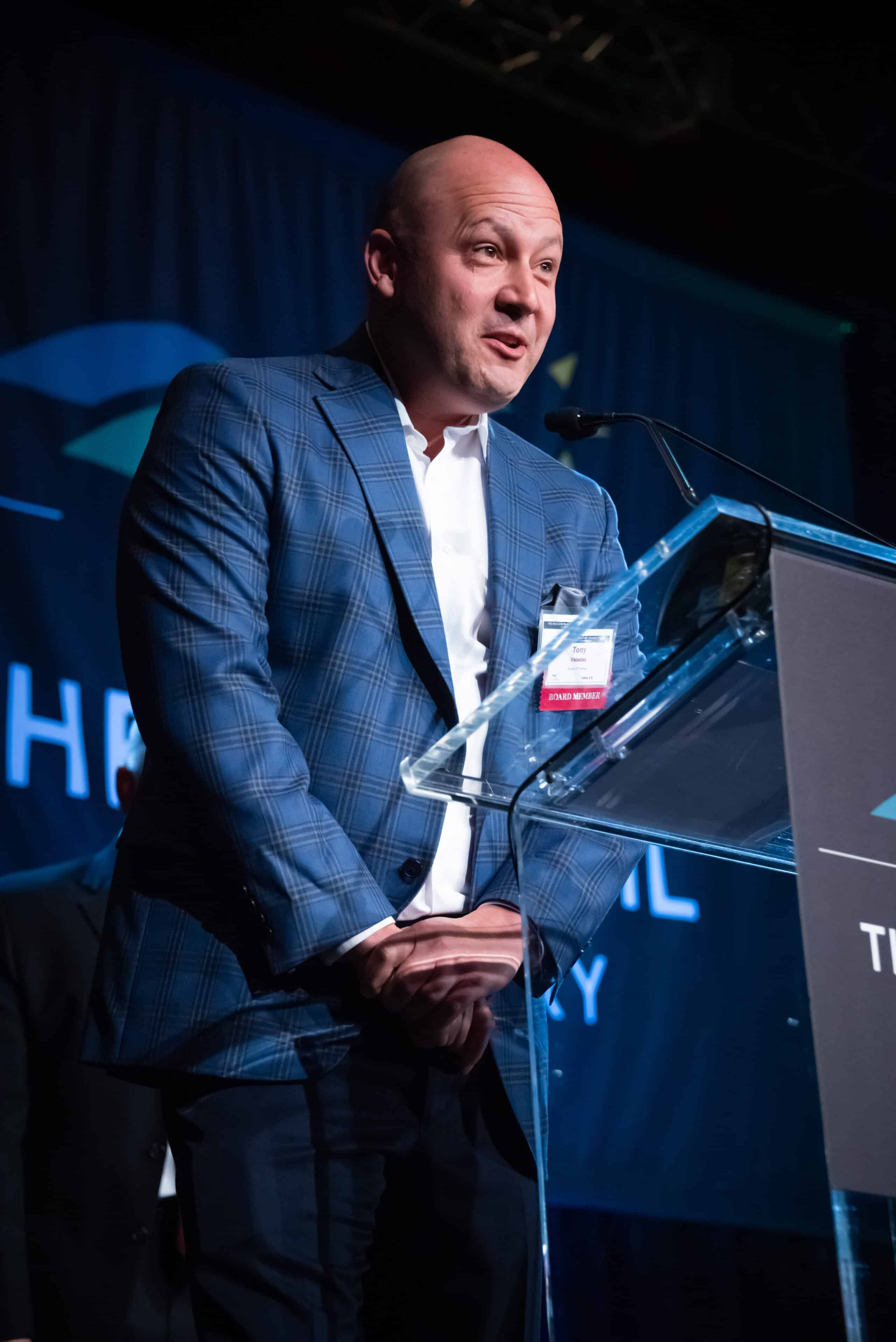
[Read Dennis’ story; read Tony’s story].
With preceding remarks from The Council’s President/CEO, Mel Taylor and Board of Trustees Chairman Bob Newhouse, a heartfelt introduction by Jerri Duddlesten-Moore brought Alice Cooper to the stage.
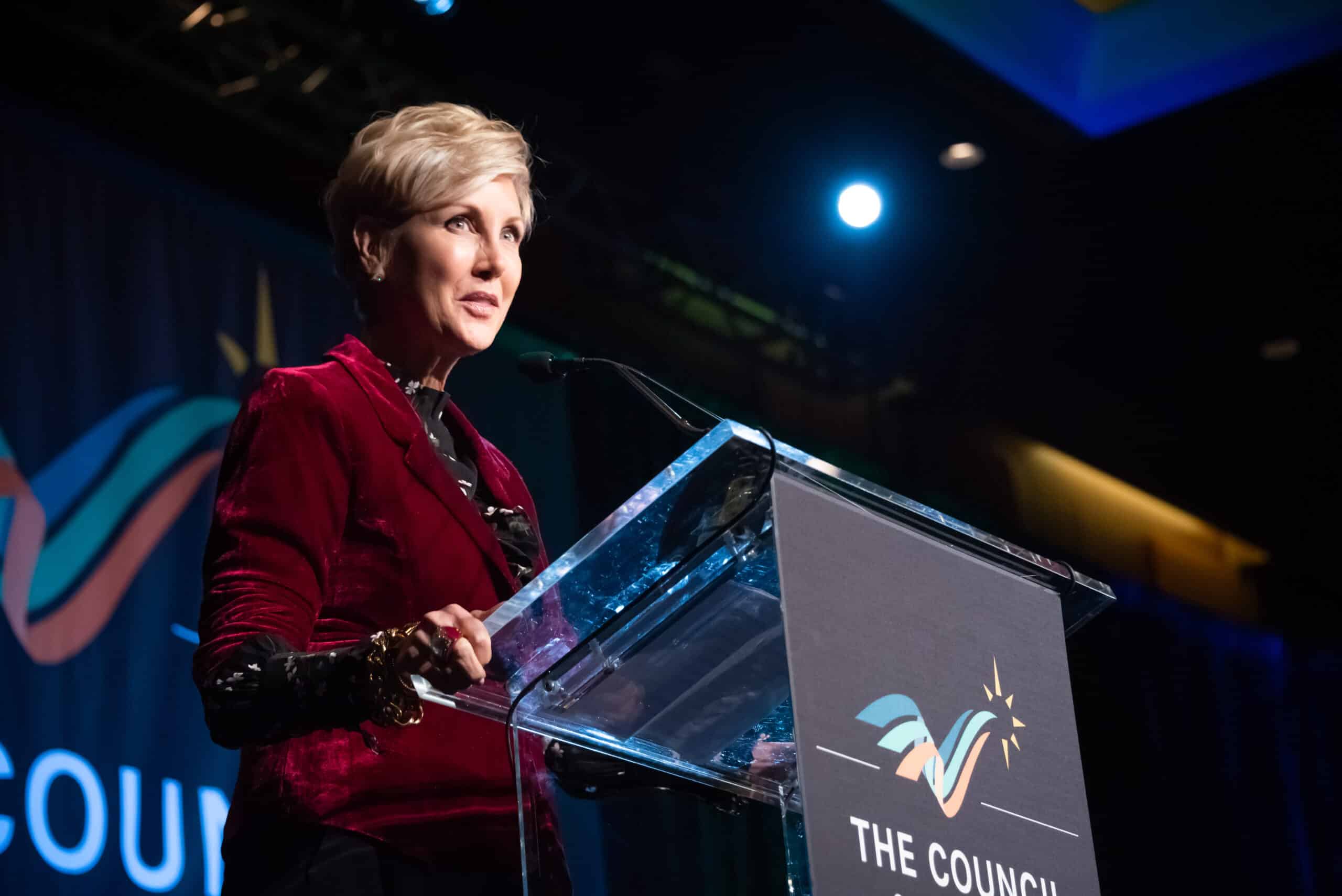
In an intimate interview conducted by KPRC/Channel 2’s Frank Billingsly, Alice opened up about his illustrious career in rock & roll that spanned the last fifty years. Like many rockers of the late 60’s and early 70’s, Alice’s trajectory into stardom was initially fueled by drugs and alcohol.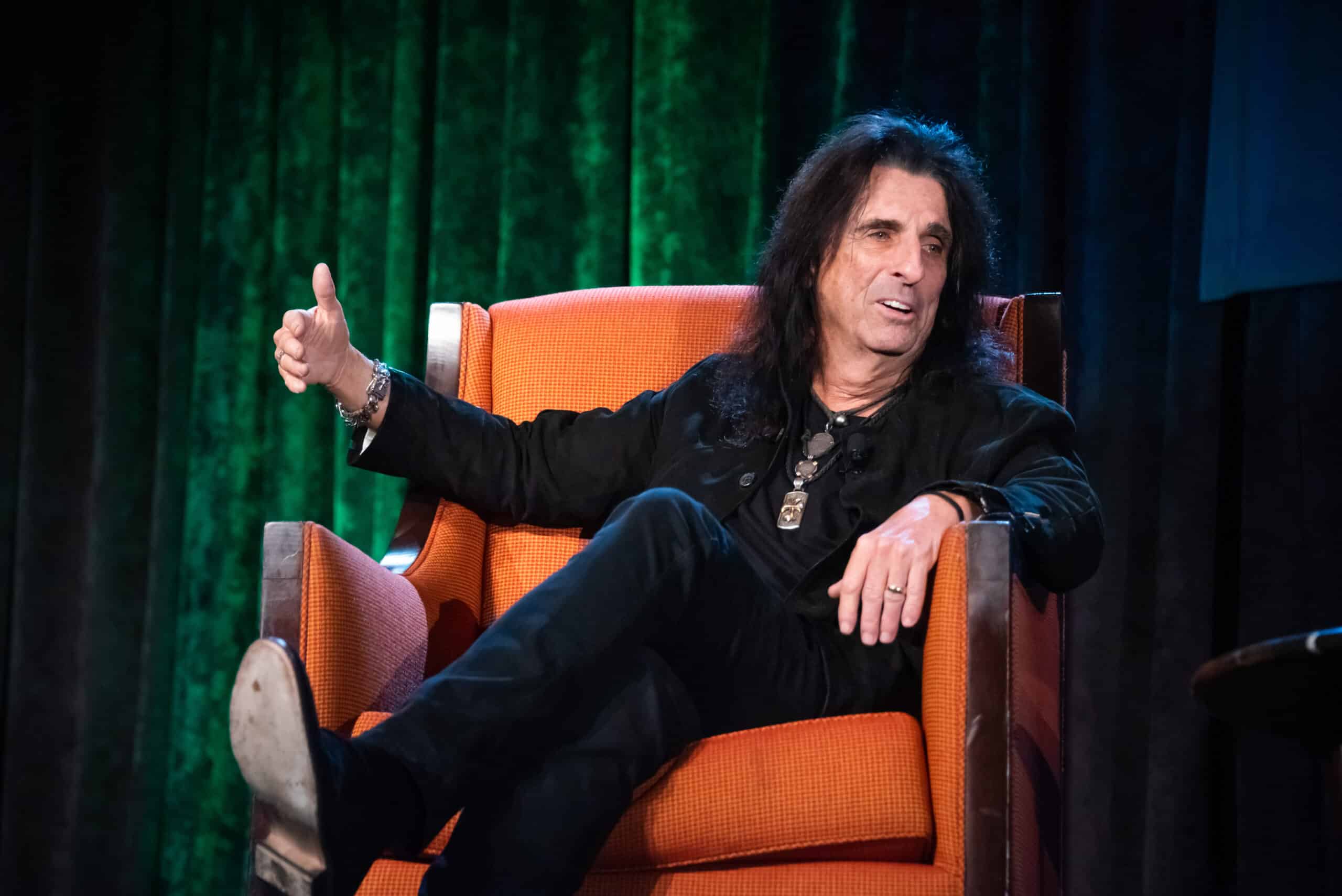
“I was never a drunk ‘drunk’, but I never got sober,” Cooper said. “I used to like to drink, but then I got to the point where I hated it.”
In his late twenties, after performing his “Welcome to My Nightmare” show in 65 cities over 72 days, exhaustion and drinking had finally taken their toll.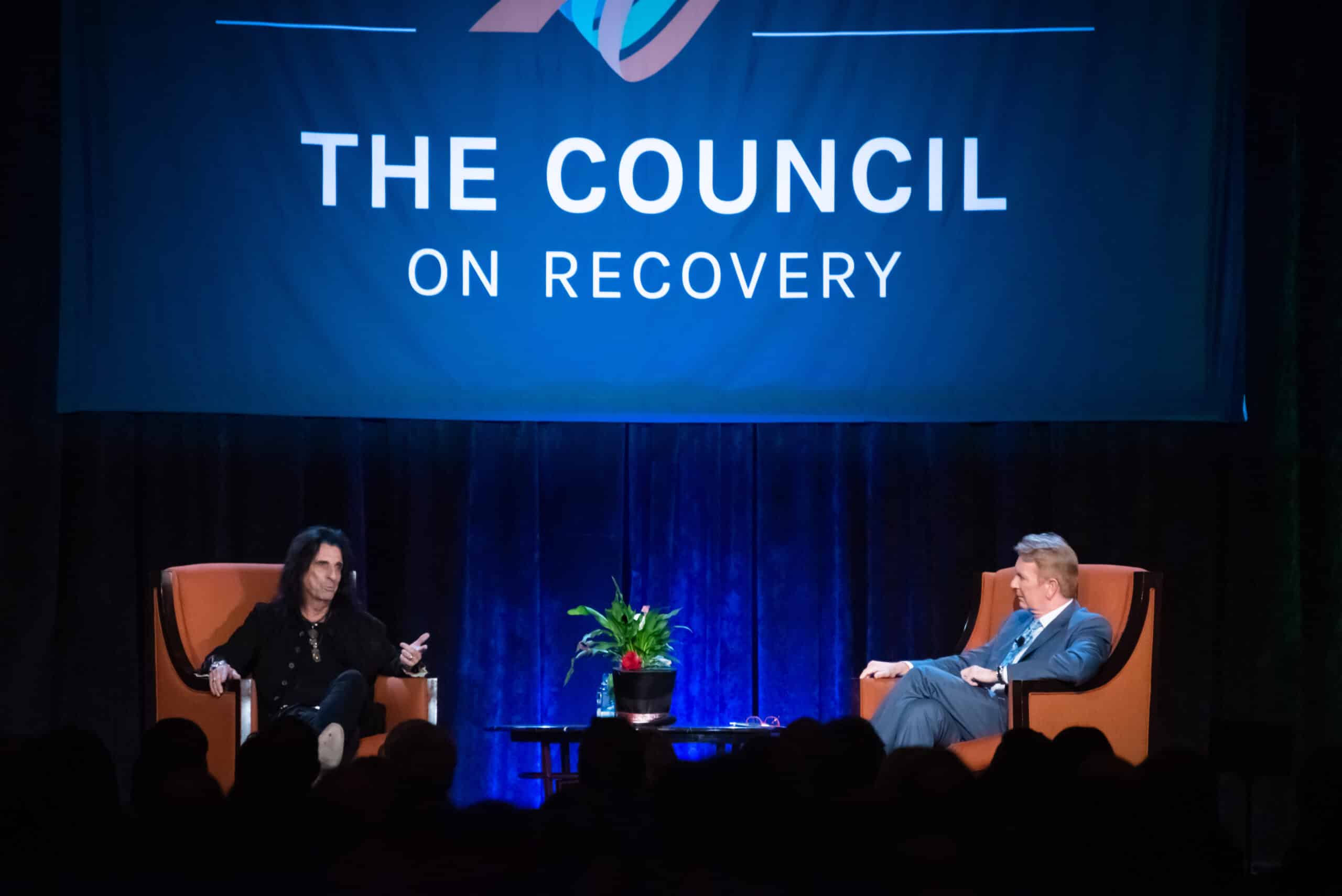
“I got up and threw up blood, that’s probably a bad sign,” Cooper said. “My wife [Sheryl], we’ve been married 43 years…, she’s the one who said, ‘Hey, superstar, party’s over.’ I was hospitalized…in 1977…for about three months.”
Asked about that experience, Cooper said, “The crazy thing about my sobriety was…no one is ever a cured alcoholic, but I’m a healed alcoholic. I came out of the hospital and I was the classic alcoholic. I went right to a bar, sat down with a Coca Col,a and waited for the craving to come. And it didn’t come…it never came. Thirty-five years later and it never came. Even the doctors said it was a biblical miracle.”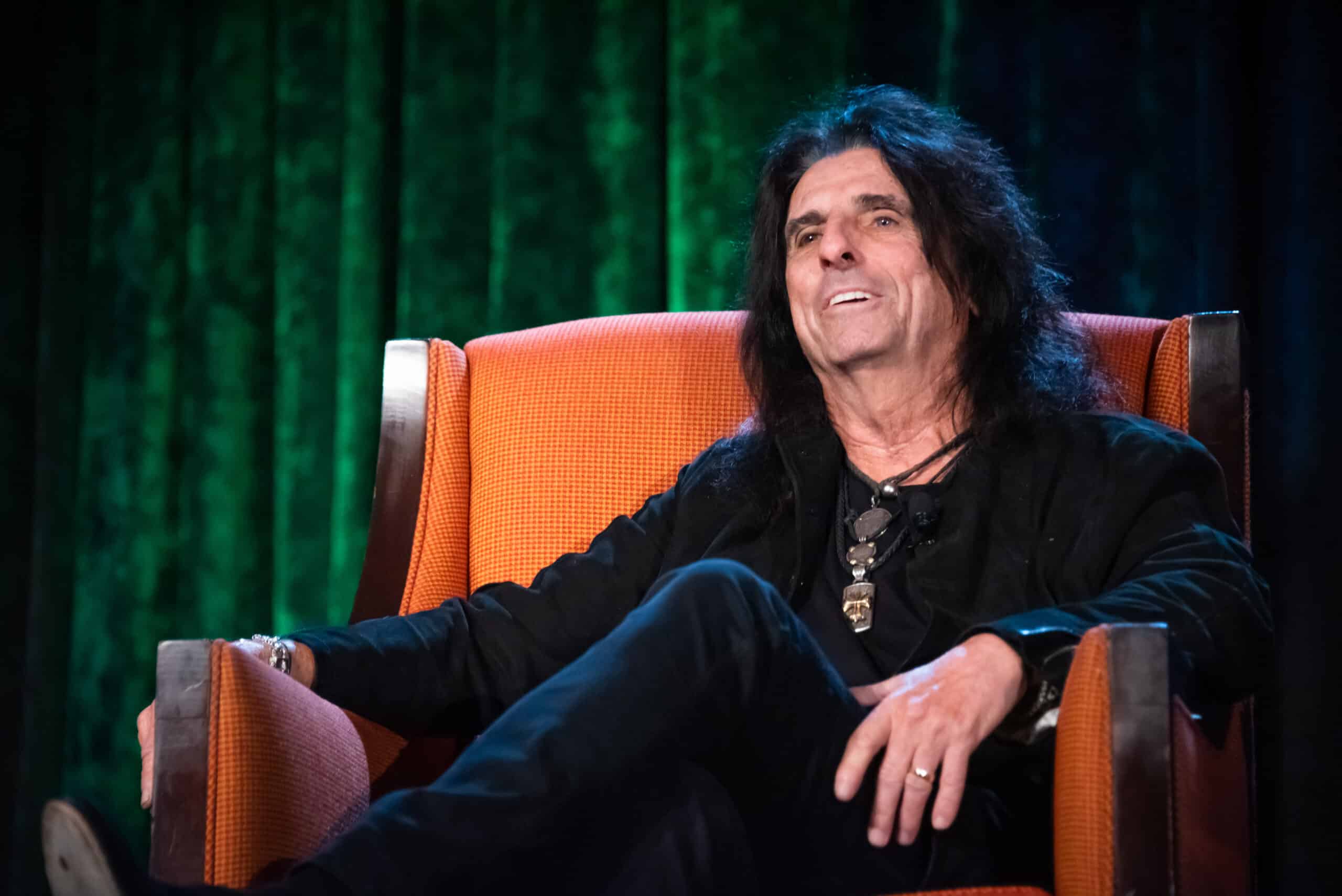
Cooper did use cocaine after he stopped drinking, but quit after a couple of years. He recalled, “I had enough of that and said ‘that’s it’ and, boom, it was done. There was nothing else, I was done.”
Sober more than 35 years, Alice Cooper admits to doing it without a twelve-step program. Speaking of two fellow rock stars, Joe P. and Steven T., Cooper said, “Now, there are two guys…who went through very heavy drug and alcohol [use]… and they are in AA every day. I applaud them for doing that, too, because it means that much to them…two guys that probably should have been dead in the early 70’s are still making records and still out there doing it.”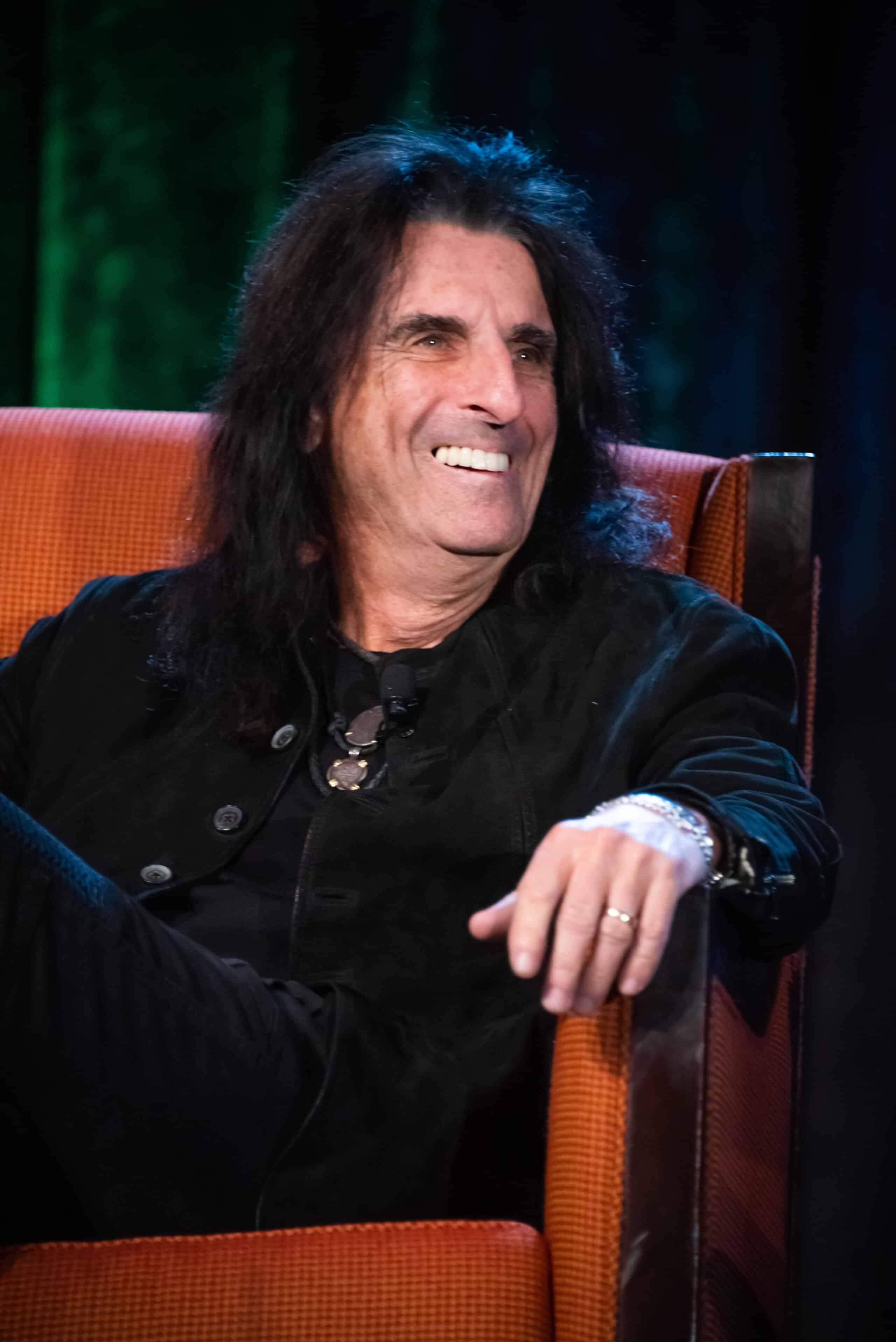
Relating his role as a sober rock star and the new generation of younger fans, Cooper reminisced about Jim Morrison, Jimmy Hendrix, and Janis Joplin who were brilliant in their field, but never stopped using and all died at 27. “Kids [today] look at us that got sober and they’re smart enough to go ‘ah’, that’s what I’m looking at. It’s not that cool to be high anymore,” Cooper said. “In my lyrics in my songs you’re going to find a lot of warning about drugs and alcohol…some people pick up on it which is good. People [tell me], ‘that one song saved my life’. A simple song can affect somebody enough that they don’t either commit suicide or they get the picture that drugs or alcohol are gonna kill you.”
When asked what he would say to people who are on-the-fence about having a problem with drugs or alcohol, Cooper said, “When you face that realization, and want to go on, you have to face that problem. It took me getting sick before I got control of it. If you think you’re an alcoholic, go two weeks without it and see if it’s part of your body, if it’s an everyday thing.”
Alice Cooper recently finished 190 shows in 17 countries on five continents. “I’m the only one not breathing hard,” Cooper quipped, “and I play golf six days a week [with a 4-handicap].”
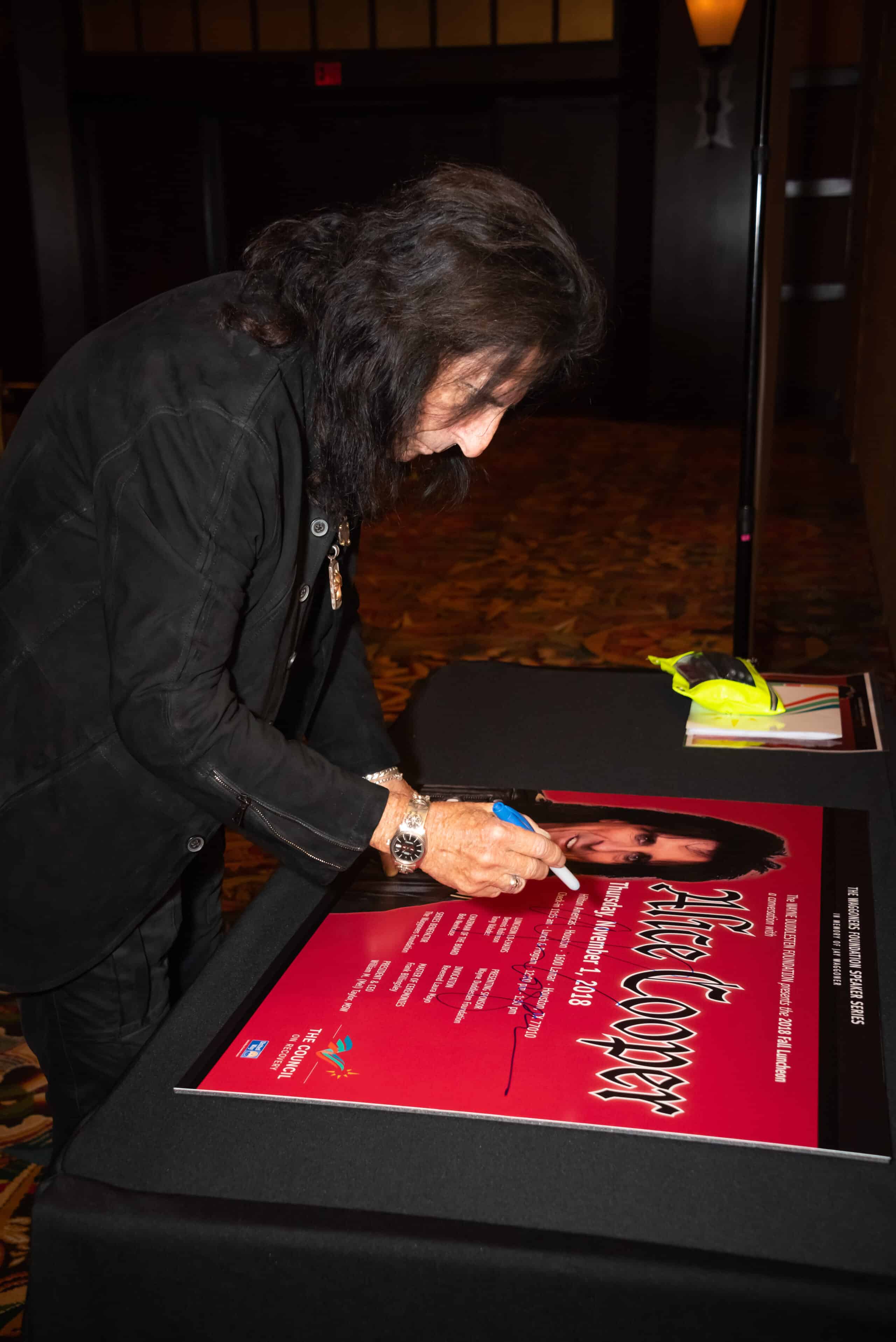 Cooper is well-known for helping to support other musicians who struggle with addiction, and has even opened a nonprofit program, Solid Rock, dedicated to helping vulnerable teenagers make healthy choices.
Cooper is well-known for helping to support other musicians who struggle with addiction, and has even opened a nonprofit program, Solid Rock, dedicated to helping vulnerable teenagers make healthy choices.
Check our Blog in comings days for additional Luncheon photos!
Video Links:
